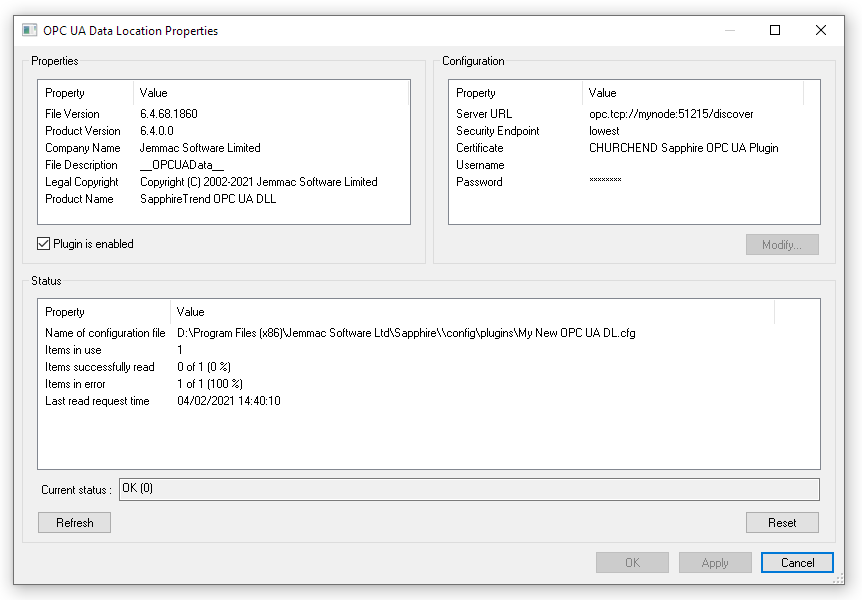
The Properties dialog has three read only sections - Properties, Status and Current State. These display build data and statistics relating to the current performance of the OPC UA Data Location.
The fourth section - Configuration - is used to provide the details of the OPC UA Server data is to be collected form. See the following section for more information.

In order to establish a connection with a OPC UA Server, the following fields should be configured:
|
Data Entry field: |
Description: |
|
Server URL |
The Uniform Resource Locator (URL) for the OPC UA Server Endpoint. A Server Endpoint being a physical address available on a network that allows clients to access one or more services provided by a Server. |
|
Security Endpoint |
Which of the OPC UA Servers Security Endpoints to use.
During connection the OPC UA Server will return a list of Security Endpoints it supports, ordered based on its opinion of how secure each is from highest to lowest.
The Collector will decide which one to use based on the value entered for this field.
Valid options are:
Tip: Example text strings being "Sha256" or "RsaOaep". |
|
Certificate |
The name of the certificate to use from the Collector machine’s certificate store when encrypting messages to send to the UA OPC Server.
Note: The Certificate will have been automatically created for you when the OPC UA Data Location was added via the stManager. Tip: In most cases this field should be left unchanged, but it can be modified if an OPC UA Server requires clients to use a different certificate in order to authenticate. |
In addition, if the OPC UA Server implements Basic Authentication the following fields can be used to specify the necessary information:
|
Data Entry field: |
Description: |
|
Username |
The username to supply for Basic Authentication.
Tip: Leave this field blank if Basic Authentication is not required. |
|
Password |
The password to supply for Basic Authentication.
Tip: Leave this field blank if Basic Authentication is not required. Note: Passwords are encrypted when stored locally for enhanced security. |